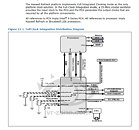
Microsoft Brings FPS Boost Support Up to 97 Games on Xbox Series X|S
Remember that neat Microsoft engineering trick that boosted previous-gen's games' performance on their latest and greatest Xbox Series X|S consoles? Well, Microsoft has released a new update for FPS Boost which increases the number of titles from the previous 23. The update adds the FPS boosting capability to a mind-boggling 74 games in one go, increasing their performance up to 60 FPS at their respective rendering resolutions.
Of course, one might want some more changes to be made to the game. However, remember that this a wholly Microsoft endeavor - there's no developer work required or being done here. some developers have released "next-gen" updates to some of their releases from the Xbox One and PS4 era, but FPS Boost is developer agnostic, and works via the Direct 3D API on the Xbox consoles. Titles getting an FPS Boost include Assassin's Creed Unity (maybe now finally is the time to play that one Assassin's Creed game, uh?), Deus Ex Mankind Divided, Alien Isolation (get some scares at double the framerate, what's not to love?) Wasteland 3, and Far Cry 5 all moving to 60 FPS.
Of course, one might want some more changes to be made to the game. However, remember that this a wholly Microsoft endeavor - there's no developer work required or being done here. some developers have released "next-gen" updates to some of their releases from the Xbox One and PS4 era, but FPS Boost is developer agnostic, and works via the Direct 3D API on the Xbox consoles. Titles getting an FPS Boost include Assassin's Creed Unity (maybe now finally is the time to play that one Assassin's Creed game, uh?), Deus Ex Mankind Divided, Alien Isolation (get some scares at double the framerate, what's not to love?) Wasteland 3, and Far Cry 5 all moving to 60 FPS.










